Filter by

Educating for professional life : twenty-five years of the University of West…
"The story of the University of Westminster is the fifth volume in a series of titles exploring the University's long and diverse history. This book celebrates the twenty-fifth anniversary of the institution gaining university status, the right to award its own degrees and to participate in publicly funded research. Drawing on extensive research conducted in the University of Westminster Archiv…
- Edition
- -
- ISBN/ISSN
- 9781911534983
- Collation
- -
- Series Title
- -
- Call Number
- 378.42 PEN e
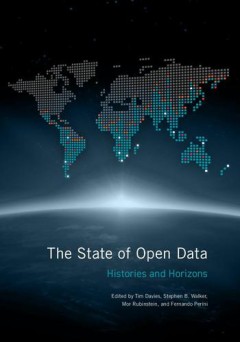
The state of open data : histories and horizons
It’s been ten years since open data first broke onto the global stage. Over the past decade, thousands of programmes and projects around the world have worked to open data and use it to address a myriad of social and economic challenges. Meanwhile, issues related to data rights and privacy have moved to the centre of public and political discourse. As the open data movement enters a new phase…
- Edition
- -
- ISBN/ISSN
- 9781928331957
- Collation
- xiii, 574p. : ill.
- Series Title
- -
- Call Number
- 070.57973 STA s
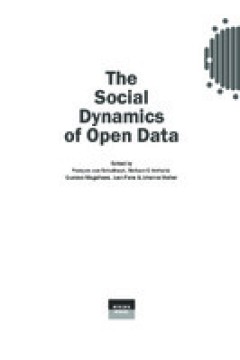
The social dynamics of open data
The Social Dynamics of Open Data is a collection of peer reviewed papers presented at the 2nd Open Data Research Symposium (ODRS) held in Madrid, Spain, on 5 October 2016. Research is critical to developing a more rigorous and fine-combed analysis not only of why open data is valuable, but how it is valuable and under what specific conditions. The objective of the Open Data Research Symposium a…
- Edition
- -
- ISBN/ISSN
- 9781928331568
- Collation
- viii, 200p. : ill.
- Series Title
- -
- Call Number
- 352.88 SOC s
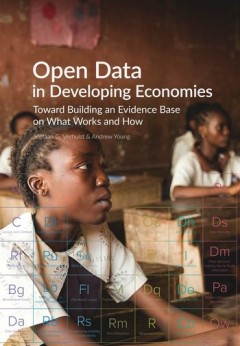
Open data in developing economies : toward building an evidence base on what …
Recent years have witnessed considerable speculation about the potential of open data to bring about wide-scale transformation. The bulk of existing evidence about the impact of open data, however, focuses on high-income countries. Much less is known about open data’s role and value in low- and middle-income countries, and more generally about its possible contributions to economic and social…
- Edition
- -
- ISBN/ISSN
- 9781928331599
- Collation
- v, 275p. : ill.
- Series Title
- -
- Call Number
- 352.38091724 VER o
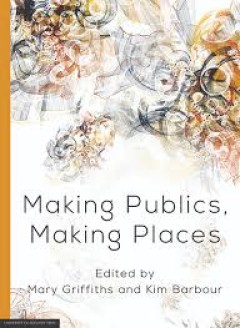
Making publics, making places
This book focuses on the surprising generative possibilities which digital and smart technologies offer media consumers, citizens, institutions and governments in making publics and places, across topics as diverse as Twitter audiences, rural news, the elasticity of the public sphere, Weibo, cultural heritage and responsive spaces in smart cities. Multidisciplinary perspectives engage with crit…
- Edition
- -
- ISBN/ISSN
- 9781925261431
- Collation
- xviii, 216p. : ill.
- Series Title
- -
- Call Number
- 307.76 MAK m
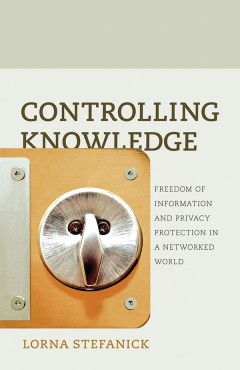
Controlling knowledge : freedom of information and privacy protection in a ne…
Digital communications technology has immeasurably enhanced our capacity to store, retrieve, and exchange information. But who controls our access to information, and who decides what others have a right to know about us? In Controlling Knowledge, author Lorna Stefanick offers a thought-provoking and user-friendly overview of the regulatory regime that currently governs freedom of information a…
- Edition
- -
- ISBN/ISSN
- 9781926836614
- Collation
- xi, 251p. : ill.
- Series Title
- -
- Call Number
- 342.0853 STE c
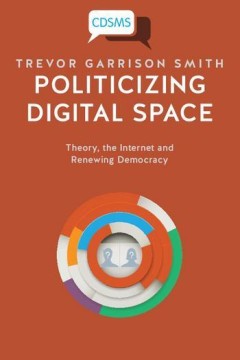
Politicizing digital space : theory, the Internet, and renewing democracy
"The objective of this book is to outline how a radically democratic politics can be reinvigorated in theory and practice through the use of the internet. The author argues that politics in its proper sense can be distinguished from anti-politics by analyzing the configuration of public space, subjectivity, participation, and conflict. Each of these terrains can be configured in a more or less …
- Edition
- -
- ISBN/ISSN
- 9781911534433
- Collation
- vi, 147p. : ill
- Series Title
- -
- Call Number
- 324.7 SMI p
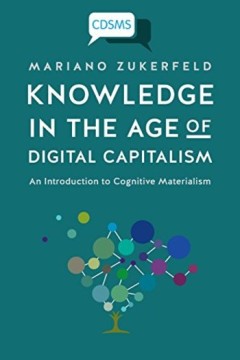
Knowledge in the age of digital capitalism : an introduction to cognitive mat…
Knowledge in the Age of Digital Capitalism proposes a new critical theory concerning the functioning of capitalism and how we consider knowledge and information. This ambitious book systematically and lucidly introduces contemporary phenomena into the framework of cognitive materialism to address some of the great themes of the social sciences: knowledge, exploitation and social class in an acc…
- Edition
- -
- ISBN/ISSN
- 9781911534273
- Collation
- ix, 261p. : ill.
- Series Title
- -
- Call Number
- 303.4833 ZUK k
Libraries driving access to knowledge
This book is a must for librarians with international interest in access to knowledge. It includes a collection of 15 chapters written by authors from all over the world and covers different approaches to the vital role of libraries driving access to knowledge. There are chapters that offer solutions and ideas to enable libraries to become the knowledge engine in society. Other chapters discuss…
- Edition
- -
- ISBN/ISSN
- 9783110263121
- Collation
- 402p. : illustrations ; 24 cm.
- Series Title
- IFLA publications, 151
- Call Number
- 021.2 LAU l
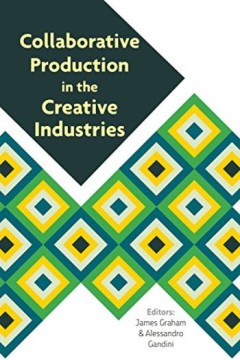
Collaborative production in the creative industries
"In recent years research into creative labour and cultural work has usually addressed the politics of production in these fields, but the sociotechnical and aesthetic dimensions of collaborative creative work have been somewhat overlooked. This book aims to address this gap. Through case studies that range from TV showrunning to independent publishing, from the film industry to social media pl…
- Edition
- -
- ISBN/ISSN
- 9781911534310
- Collation
- vii, 231p. : ill.
- Series Title
- -
- Call Number
- 338.477 COL c
 Computer Science, Information & General Works
Computer Science, Information & General Works  Philosophy & Psychology
Philosophy & Psychology  Religion
Religion  Social Sciences
Social Sciences  Language
Language  Pure Science
Pure Science  Applied Sciences
Applied Sciences  Art & Recreation
Art & Recreation  Literature
Literature  History & Geography
History & Geography